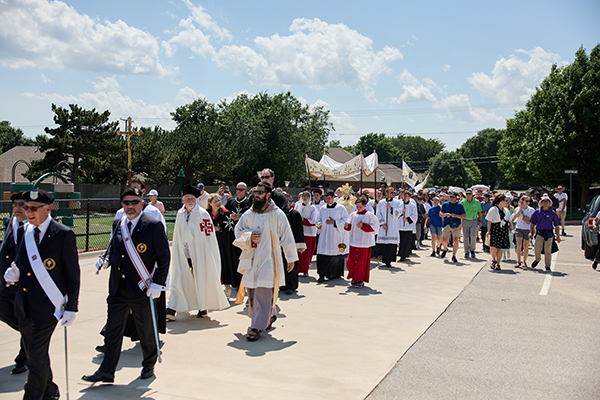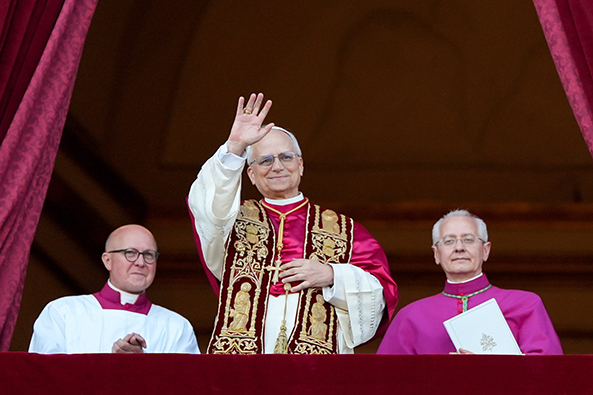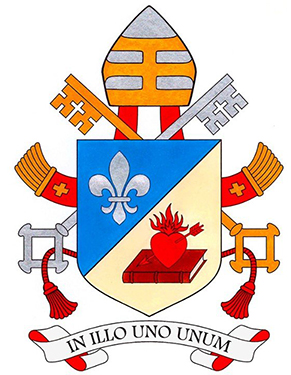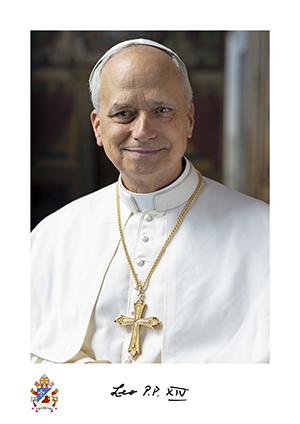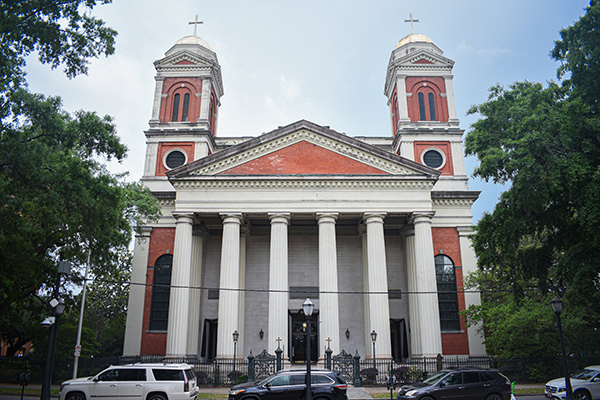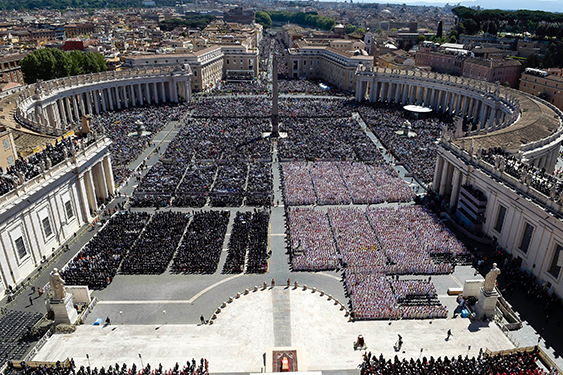By Justin McLellan , Catholic News Service
VATICAN CITY (CNS) — Almost four years after Pope Francis opened the Catholic Church’s path toward synodality — a term many in the church had never heard before — his successor has thrown his support behind the last leg of the church’s synodal journey.
The Synod of Bishops, which admitted women, lay and other non-bishop voting members among its ranks during its two universal assemblies in October 2023 and 2024, “naturally retains its institutional profile and at the same time is enriched by the mature fruits of this season,” Pope Leo XIV told the ordinary council of the synod June 26. “You are the body appointed to reap these fruits and make a prospective reflection.”
Over two days, the council convened to approve a document for the synod’s final implementation stage intended to improve dialogue between local churches and the Vatican synod office, the General Secretariat for the Synod of Bishops said in a statement June 30. The document will be released July 7 at www.synod.va.
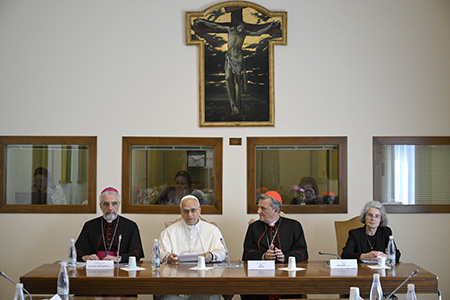
The council also discussed the work of study groups instituted by Pope Francis to deal with hot-button topics — such as women’s ordination and changes to priestly formation.
The study groups were scheduled to present interim reports on their findings in June 2025, but the synod office noted that “due to the death of Pope Francis and the election of Pope Leo XIV, there have been delays.” In agreement with Pope Leo, the deadline to submit the final reports was extended to Dec. 31, 2025, and the interim reports will be published on the synod office’s website as they are received, it said.
According to the apostolic constitution “Universi Dominici Gregis,” which governs procedures when the papacy is vacant, a council or Synod of Bishops is immediately suspended when a pope dies or resigns. All meetings, decisions and promulgations must cease until a new pope explicitly orders their continuation, or they are considered null.
The late pope launched the diocesan phase of the worldwide synodal process in October 2021, and it was originally scheduled to culminate with an in-person assembly in Rome in October 2023. Another assembly was held after a year of listening in October 2024, and in March, Pope Francis launched a three-year implementation phase of the synod that will culminate in an ecclesial assembly at the Vatican in October 2028.
Pope Leo told the synod’s ordinary council June 26, “I encourage you in this work, I pray that it may be fruitful and as of now I am grateful.”
The General Secretariat of the Synod of Bishops said that the expected document, titled “Pathways for the Implementation Phase of the Synod,” is a practical and theological guide for diocesan bishops and synodal teams as they apply the synod’s final proposals locally.
The synod office noted that this phase of the synodal process “belongs above all to the local Churches,” which are tasked with translating the synod assembly’s “authoritative proposals” into concrete pastoral practices within their respective contexts. At the same time, the synod office said the guidelines were developed to respond to questions raised by bishops and diocesan leaders in recent months and are intended to support, not replace, local discernment.
Cardinal Mario Grech, secretary-general of the Synod of Bishops, acknowledged in his opening remarks of the council’s meeting that “difficulties and resistance” to the synodal process remain. He said that while some dioceses have already begun the implementation phase with enthusiasm, others are awaiting the forthcoming guidelines “with trepidation.”
“These contrary positions must not be overlooked,” he said. “Rather, I would say they must challenge us deeply.”
Cardinal Grech proposed establishing a permanent forum, which he called a “Table of Synodality,” to foster ongoing theological and canonical reflection on synodality and encouraged greater investment in formation programs. He also said that new partnerships with academic institutions and the continued support of young theologians would help cultivate a synodal “mentality” across the church.

